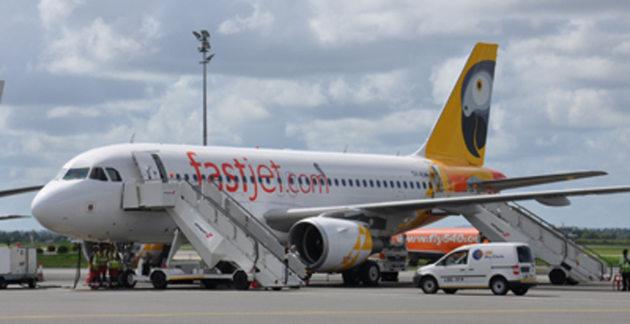City’s audited accounts out

Robson Sharuko Senior Sports Editor—
PREMIERSHIP side Harare City have displayed their professionalism, in a rare move by a football club in the country’ top-flight league, by completing the auditing of the financial statements related to their operations covering the 2012, 2013, 2014 and 2015 seasons.An interim audit of the club’s financial statements for the just-ended season, as of June 30 2016, has already been completed.
The audited financial statements, set to be made public, by being published in the mainstream newspapers, in the next few days, show the club’s deficit has been coming down in successive years.
Critics of the club’s leadership have gone into overdrive, in recent weeks, to paint an image of a group of individuals who have possibly been abusing the funds meant to run the team and questioning their professionalism.
But The Herald can reveal that the audited financial statements for the 2012, 2013, 2014 and 2015 seasons have been completed and were all done by Harare firm MJV Chartered Accountants. The statements show that, in 2012 Harare City had income of $600 715 and their expenditure amounted to $615 292 which left the club with a deficit of $14 577.
The biggest chunk of the income came largely from sponsorship, which brought in $507 086, with gate receipts bringing in just $56 600, all season, and grants for the merit awards brought in $29 615 into their kitty.
The club also received $6 725 in donations, collected $647 from vending fees and received an interest of just $41.
Salaries and wages chewed $261 550 that year, staff welfare amounted to $34 331 while match day expenses accounted for a further $153 913.
The match day expenses were broken down as $28 292 for direct match expenses, $9 654 for match allowances, $65 446 for match bonuses, $15 680 for out-of-pocket expenses, $18 310 for pitch hire, $6 257 for levies, $3 470 for camping and $6 804 for appearance fees. Player acquisition and registration cost the club $97 270 with $28 500 being spent in acquiring players, $67 700 spent on registration and $1 000 on signing-on fees.
Operating expenses, which chewed $9 681, included $1 270 spent on awards, $1 758 which went to bank charges, $2 556 for the bus repairs and maintenance, $173 for advertising and marketing, $423 for printing and stationery, $770 for security while the telephone costs chewed $2 679 and water $52 for a total of $9 681.
Travelling and accommodation accounted for $37 972 with $4 090 going towards bus hire, $12 713 going towards fuel, $10 425 going towards travel and accommodation and $10 744 going towards transport allowances.
A further $20 575 was spent on kit and equipment with uniforms and training equipment costing $17 608 and laundry costing $2 967.
As of December 31, last year, in 2012, the club had a deficit of $14 577.
The following year, 2013, income for the club rose to $1 223 277, almost double the previous year.
But the club’s expenditure also rose with the team spending $1 407 203 compared to the $615 292 they had spent in the previous campaign.
Salaries and wages accounted for $327 813, compared to $261 550 in the previous season, match day expenses chewed $331 264, compared to $153 913 the previous year, player acquisition and registration costs rose to $397 755, compared to $97 270 the previous season, while a further $104 117 went towards operating expenses.
Travel ad accommodation chewed $116 397, which was almost three times the $37 972 they had spent the previous season, while kit and equipment costs rose to $77 605 from the $20 575 which the club had spent the previous season.
The club had a deficit of $198 503 as of December 31, 2013.
Sponsorship for the club rose to $1 053 272 that year, gate receipts improved slightly to $78 239, playing revenue brought $90 878, vending fees fetched $819 for a total income of $1 223 277.
The match day expenses were dominated by the match allowances that chewed $17 782, the match bonuses which blew $192 614, pitch hire that rose to $30 330, appearance fees that cost $8 035, camping which cost $7 529 and match expenses that cost $45 010.
The club spent $245 390 on signing-on fees for players, compared to just $1 000 the previous year, $77 360 on player registration and $75 005 on player acquisition.
In 2014, income rose to $1 763 527 while expenditure was pegged at $1 712 411 and, for the first time since their entry into the Premiership, the club had a surplus of $51 116.
Travel and accommodation blew away $250 028, player acquisitions and registration cost $360 194 while match day expenses chewed $560 678 with salaries and wages accounting for $263 378.
Kit and equipment cost $70 284, which was a slight reduction from the $77 605 they paid the previous season.
But given the club had run a deficit of $198 503 the previous year, the surplus only brought down their deficit to $147 388.Last year, income rose to $2 619 323 while expenditure also rose to $2 597 872.
Salaries and wages blew away $458 694, match day expenses accumulated for $905 363, a further $369 000 went towards accommodation and travel expenses, $166 710 went towards player acquisition and registration and the Harare City netball club chewed $38 882, the City Hornets basketball club spent $78 294 and the club’s youth teams cost $67 833 while kit and equipment cost $175 963.
The club actually had a surplus, for the year, of $21 451.









Comments